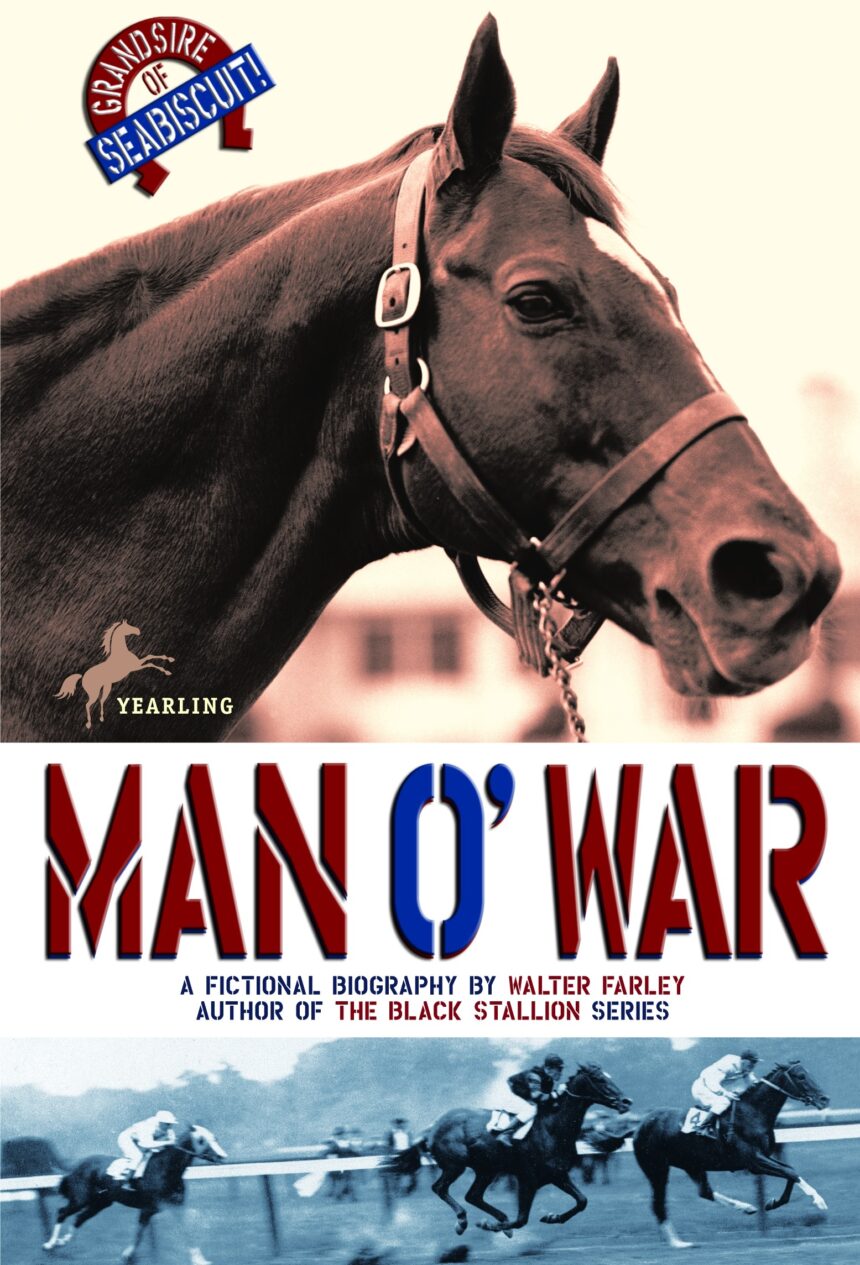Introduction to Man o’ War
Unleash the thundering hooves, for today we dive into the captivating world of horse racing and pay homage to a true legend: Man o’ War. With his fiery spirit and unparalleled speed, this mighty stallion carved his name into the annals of history, leaving an indelible mark on the horse racing industry. Join us as we delve into Man o’ War’s extraordinary life, analyze his unmatched racing record, explore comparisons with other legendary racehorses, discuss controversies surrounding his dominance, and marvel at the enduring legacy he left behind. Saddle up and let’s embark on this exhilarating journey through time!
Early Life and Racing Career
Man o’ War, a name that still resonates with awe and reverence in the world of horse racing. But what was the story behind this legendary thoroughbred’s early life and racing career? Let’s take a closer look.
Born on March 29, 1917, at Nursery Stud in Lexington, Kentucky, Man o’ War was sired by Fair Play and out of Mahubah. From an early age, it was clear that he possessed exceptional talent and potential. As a foal, he displayed grace and power that set him apart from his peers.
His racing career began in June 1919 when he made his first start at Belmont Park. Despite being inexperienced, Man o’ War stormed to victory by six lengths, leaving spectators amazed by his raw ability. This remarkable debut marked the beginning of a legacy that would be etched into the annals of horse racing history.
Over the course of his career, Man o’ War competed in twenty-one races and emerged victorious in twenty of them. His only defeat came against Upset at Saratoga Race Course in one of the most famous upsets ever witnessed on American racetracks.
Throughout his racing journey, Man o’ War shattered records and left competitors trailing far behind. His dominance can be attributed to not just his speed but also his indomitable will to win. He seemed almost unbeatable as he effortlessly glided across tracks like no other horse before him.
Comparisons have been drawn between Man o’ War and other iconic racehorses such as Secretariat or Phar Lap; however, each had their own unique qualities that set them apart. While Secretariat may hold the record for winning the Triple Crown with unmatched speed and stamina or Phar Lap may have captured hearts globally during challenging times – none could match Man o’War’s sheer dominance on track.
The legacy left behind by Man o’War is undeniable – influencing breeding programs worldwide and shaping the modern horse racing industry. His offspring, such as War Admiral and
Analysis of His Racing Record
Man o’ War’s racing record is nothing short of extraordinary. With a total of 20 wins out of 21 starts, he boasts an astounding winning percentage of over 95%. This incredible accomplishment showcases his sheer dominance on the racetrack.
During his career, Man o’ War set multiple records and achieved remarkable feats that have yet to be matched by any other racehorse. He won the Preakness Stakes, the Belmont Stakes, and numerous other prestigious races with ease, often finishing lengths ahead of his competitors.
One aspect that sets Man o’ War apart from other legendary racehorses is not just his impressive win-loss ratio but also the manner in which he won. He frequently broke track records and consistently displayed unparalleled speed and athleticism on the racecourse.
Furthermore, it was not only his victories that amazed spectators but also how effortlessly he seemed to dominate every race. Jockeys who rode against him often described feeling as though they were merely passengers while riding alongside this magnificent horse.
Moreover, Man o’ War’s ability to adapt to various distances and track conditions further solidifies his status as one of the greatest thoroughbreds in history. Whether it was a sprint or a long-distance race, firm ground or muddy surface, he excelled in all scenarios.
Overall,
Man o’ War’s racing record speaks for itself – a testament to his exceptional talent and unrivaled prowess on the racetrack. His unmatched success has forever etched him into horse racing history as one of its true legends.
Comparison to Other Legendary Racehorses
Man o’ War’s dominance on the racetrack was truly unparalleled, but how does he stack up against other legendary racehorses? Let’s take a look at some of his contemporaries and successors.
One such horse is Secretariat, another American racing legend. While Man o’ War had an impressive record of 20 wins out of 21 starts, Secretariat also left his mark in the history books. In fact, Secretariat became the first Triple Crown winner in 25 years, setting records that still stand today.
Then there’s Citation, who won the Triple Crown in 1948. Although he achieved this remarkable feat, many consider Man o’ War to be the superior racehorse due to his unbeaten record and sheer dominance on the track.
Moving on to more recent times, we have American Pharoah. This incredible horse broke a 37-year-long drought by winning the Triple Crown in 2015. However, even with this achievement under his belt, some argue that Man o’ War’s perfect record makes him incomparable.
In international racing circles, we have names like Frankel and Black Caviar. Both horses were undefeated throughout their careers and captivated audiences around the world. While they certainly made their marks as dominant racehorses during their eras, it would be difficult to definitively compare them to Man o’ War without proper head-to-head competition.
Ultimately though each of these legendary racehorses has left an indelible mark on the sport of horse racing; it is undeniable that Man o’War stands alone as one of its greatest champions. His unmatched winning streak and impact on future generations solidify his place in history as an icon amongst icons.
Legacy and Impact on the Horse Racing Industry
Man o’ War’s legacy extends far beyond his racing career, leaving an indelible mark on the horse racing industry. His dominance on the track set new standards for excellence and forever changed the way people viewed thoroughbred racing.
Man o’ War’s impressive record of 20 wins out of 21 starts showcased his unparalleled talent and athleticism. His astonishing speed and stamina captivated audiences around the world, attracting a wave of new fans to the sport. This surge in popularity helped elevate horse racing into a mainstream form of entertainment.
In addition to his victories, Man o’ War also had a profound impact on breeding practices within the industry. His exceptional bloodline made him highly sought after as a stallion, with many breeders hoping to produce offspring that possessed even a fraction of his ability.
Furthermore, Man o’ War’s success paved the way for future champions and inspired generations of trainers and jockeys to strive for greatness. Many horses since then have been compared to him but none have matched his remarkable achievements.
Moreover, he served as an ambassador for horse racing, bringing attention and publicity not only to himself but also to other races across America. The excitement surrounding each race in which he competed created buzz throughout entire communities.
Man o’ War’s influence can still be seen today in modern-day horse racing events such as Triple Crown races like Kentucky Derby or Belmont Stakes. The pursuit of greatness in these prestigious races was undoubtedly influenced by Man o’ War’s extraordinary performances.
Man o’ War’s legacy is one that will forever be revered in the annals of horse racing history. From redefining what it meant to be a champion racehorse to inspiring future generations within the industry; he remains an icon whose impact continues resonating today!
Controversies and Criticisms Surrounding Man o’ War’s Dominance
Naturally, with great success comes controversy. Despite his incredible racing record, Man o’ War was not immune to criticism from some corners of the horse racing world. One of the main criticisms leveled against him was that he did not compete in the Kentucky Derby, which is considered by many to be the ultimate test for three-year-old racehorses.
Some argued that by skipping this prestigious race, Man o’ War missed out on a crucial opportunity to solidify his status as one of the all-time greats. However, it must be noted that during his time, there were concerns about running horses at such a young age over such a demanding distance.
Another point of contention centered around Man o’ War’s limited competition against other top-tier horses. Some critics claimed that he raced mostly against inferior opponents and questioned whether he truly faced stiff competition throughout his career.
Additionally, there were those who believed that Man o’ War’s dominance overshadowed other talented racehorses of his era. While it cannot be denied that he captured much of the limelight during his time on the track, it is important to acknowledge and appreciate other champions who may have been somewhat overlooked due to Man o’ War’s overwhelming presence.
Despite these controversies and criticisms surrounding his dominance, one cannot deny or dismiss what Man o’ War achieved on the racetrack. His unparalleled speed and sheer determination set him apart from others in an era filled with exceptional racehorses.
In conclusion (end section without concluding), while debate may continue among racing enthusiasts about certain aspects surrounding Man o’War’s legacy, there is no doubt about the lasting impact he had on both horse racing history and our collective imagination. He remains an icon within the sport—his name forever etched alongside legends—and continues to inspire future generations of athletes and fans alike.
Conclusion: The Unmatched Legacy of Man o’ War
Man o’ War’s dominance in the world of horse racing is truly unparalleled. From his early days as a foal to his astonishing career on the track, he captivated audiences and solidified himself as one of the greatest racehorses in history.
With an impressive record that boasts 20 wins out of 21 starts, including victories in prestigious races such as the Belmont Stakes and Travers Stakes, Man o’ War showed not only incredible speed but also remarkable stamina and determination. His ability to effortlessly leave his competitors in the dust earned him a reputation as a true champion.
When compared to other legendary racehorses like Secretariat and Citation, it becomes evident that Man o’ War’s accomplishments are unmatched. While each horse had their own unique strengths and achievements, none could match the sheer dominance displayed by Man o’ War during his racing career.
Beyond his individual success, Man o’ War’s impact on the horse racing industry cannot be overstated. He drew enormous crowds to every race he participated in and helped popularize thoroughbred racing across America. His electrifying performances inspired countless fans and future generations of jockeys alike.
However, despite all these accolades, there have been controversies surrounding Man o’ War’s legacy. Some argue that his competition was weak or that he avoided certain races against top contenders. These criticisms may cast doubt over some aspects of his reign but do little to diminish the fact that when pitted against any opponent who dared challenge him, Man o’ War emerged victorious more often than not.
Previous Post: Unraveling the Mystique of the Triple Crown in American Horse Racing









